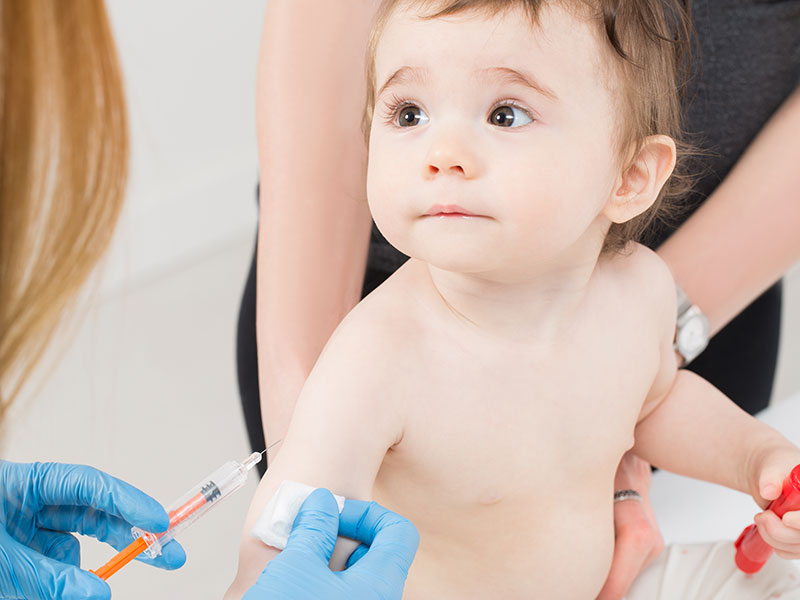
DiYES International School – 5 Must-Have Vaccines for Your Child are essential for ensuring their long-term health and protection. Vaccination is one of the most effective ways to prevent dangerous diseases. Early immunization helps children build immunity against life-threatening illnesses. Parents play a key role in ensuring their children receive the vaccines on time. This article will discuss the top 5 vaccines that every child needs from birth through adolescence. Timely vaccination not only keeps children safe but also protects the community at large.
The DTP vaccine is a crucial part of a child’s immunization schedule. It provides protection against three serious diseases: diphtheria, tetanus, and pertussis (whooping cough). Diphtheria is a bacterial infection that can severely affect the respiratory system, causing throat swelling and difficulty breathing. Tetanus, also known as lockjaw, is caused by bacteria that enter the body through cuts or wounds. It leads to painful muscle tightening and spasms. Pertussis, or whooping cough, is highly contagious and can cause severe coughing fits, making it difficult for children to breathe. This vaccine is typically given in five doses starting at 2 months of age and continues through to the child’s kindergarten years. It is vital for preventing these dangerous diseases that can be fatal or cause severe complications.
“Read about: Building Strong Bones: The Role of Calcium in Child Development”
The MMR vaccine is another essential vaccine that protects against three highly contagious diseases: measles, mumps, and rubella. Measles is a viral infection that causes a high fever, cough, runny nose, and a distinctive red rash. It can lead to serious complications like pneumonia, encephalitis (brain inflammation), and even death. Mumps is another viral illness that causes swollen glands, fever, and headache, and it can lead to complications like meningitis or permanent hearing loss. Rubella, also known as German measles, is usually mild in children but can have severe consequences if a pregnant woman contracts it, including birth defects. The MMR vaccine is usually given in two doses, one at age 1 and another at age 4, to ensure that children are protected against these potentially life-threatening diseases.
Polio, once a common disease worldwide, has been largely eradicated due to widespread vaccination efforts. However, polio can still cause paralysis and death if it is not prevented. The polio vaccine protects against the poliovirus, which attacks the nervous system and can result in lifelong disability or death. Polio is highly contagious and can spread through contaminated food, water, and surfaces. The polio vaccine is typically given in multiple doses starting at 2 months of age. In countries with a higher risk of polio outbreaks, children should receive additional booster doses to stay protected. Though polio has been almost eradicated globally, it is still critical to vaccinate to prevent a resurgence of the disease.
“Read more: The Role of Family in Children’s Education and Development”
Hepatitis B is a viral infection that affects the liver and can lead to long-term health problems such as cirrhosis, liver cancer, and liver failure. The virus is transmitted through contact with infected blood or bodily fluids. Hepatitis B can be passed from mother to child during childbirth, through needle-sharing, or through sexual contact. The hepatitis B vaccine is essential for preventing the spread of this serious disease. This vaccine is typically administered shortly after birth, with additional doses given at 1-2 months and 6-18 months of age. Protecting children early on from hepatitis B can prevent the risk of chronic liver diseases later in life.
The HPV vaccine is critical for preventing several types of cancer caused by the human papillomavirus. This virus is responsible for causing cervical cancer in women, anal cancer, and even throat cancer. HPV is a sexually transmitted infection, which makes vaccination particularly important before any sexual activity begins. The vaccine is recommended for children ages 11-12, though it can be given as early as 9 years old and up to age 26. The vaccine is most effective when given before exposure to the virus, which is why it is recommended at such an early age. By preventing HPV, the vaccine can significantly reduce the incidence of cancer-related to this virus. It’s crucial that both boys and girls receive the HPV vaccine to protect their long-term health.
Vaccination is one of the best ways to ensure your child’s well-being and long-term health. These five must-have vaccines – DTP, MMR, Polio, Hepatitis B, and HPV – are essential in providing protection from serious diseases and preventing outbreaks in the community. Immunization not only safeguards your child but also helps protect those around them, creating a safer environment for everyone. By staying on top of your child’s vaccination schedule, you are giving them the best possible defense against life-threatening illnesses.